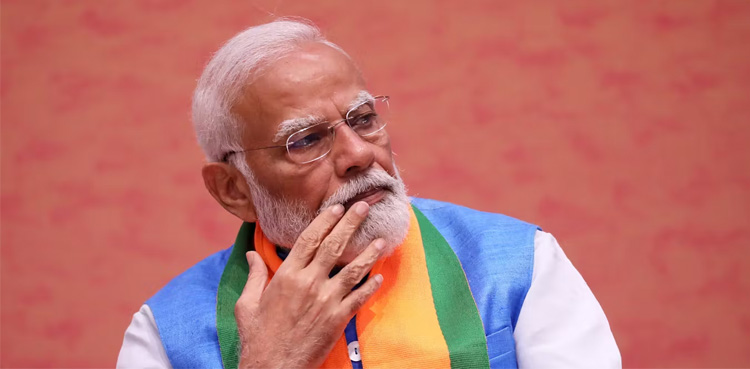
[ad_1]
Artillery shells sold by Indian arms makers have been diverted by European customers to Ukraine and New Delhi has not intervened to stop the trade despite protests from Russia, according to 11 Indian and European government and defence industry officials, as well as a Reuters analysis of commercially available customs data.
The transfer of munitions to support Ukraine’s defence against Russia has occurred for more than a year, according to the sources and the customs data. Indian arms export regulations limit the use of weaponry to the declared purchaser, who risks future sales being terminated if unauthorised transfers occur.
The Kremlin has raised the issue on at least two occasions, including during a July meeting between Russian Foreign Minister Sergei Lavrov and his Indian counterpart, three Indian officials said.
Details of the ammunition transfers are reported by Reuters for the first time.
Following the publication of this report, India’s foreign ministry described it as “speculative and misleading”.
“It implies violations by India where none exist and, hence, is inaccurate and mischievous,” ministry spokesperson Randhir Jaiswal said on Thursday.
“India has been carrying out its defence exports taking into account its international obligations on non-proliferation and based on robust legal and regulatory framework, which includes a holistic assessment of relevant criteria, including end user obligations and certifications,” Jaiswal added.
The foreign and defence ministries of Russia and the defence ministry of India did not respond to questions. In January, Jaiswal told a news conference that India had not sent or sold artillery shells to Ukraine.
Two Indian government and two defence industry sources told Reuters that Delhi produced only a very small amount of the ammunition being used by Ukraine, with one official estimating that it was under 1% of the total arms imported by Kyiv since the war. The news agency couldn’t determine if the munitions were resold or donated to Kyiv by the European customers.
Among the European countries sending Indian munitions to Ukraine are Italy and the Czech Republic, which is leading an initiative to supply Kyiv with artillery shells from outside the European Union, according to a Spanish and a senior Indian official, as well as a former top executive at Yantra India, a state-owned company whose munitions are being used by Ukraine.
The Indian official said that Delhi was monitoring the situation. But, along with a defence industry executive with direct knowledge of the transfers, he said India had not taken any action to throttle the supply to Europe. Like most of the 20 people interviewed by Reuters, they spoke on condition of anonymity due to the sensitivity of the matter.
The Ukrainian, Italian, Spanish and Czech defence ministries did not respond to requests for comment.
Delhi and Washington, Ukraine’s main security backer, have recently strengthened defence and diplomatic cooperation against the backdrop of a rising China, which both regard as their main rival.
India also has warm ties with Russia, its primary arms supplier for decades, and Prime Minister Narendra Modi has refused to join the Western-led sanctions regime against Moscow.
But Delhi, long the world’s largest weapons importer, also sees the lengthy war in Europe as an opportunity to develop its nascent arms export sector, according to six Indian sources familiar with official thinking.
Ukraine, which is battling to contain a Russian offensive toward the eastern logistics hub of Pokrovsk, has a dire shortage of artillery ammunition.
The White House declined to comment and the U.S. State Department referred questions on Delhi’s arms exports to the Indian government.
India exported just over $3 billion of arms between 2018 and 2023, according to data compiled by the Stockholm International Peace Research Institute think-tank.
Defence Minister Rajnath Singh said at an Aug. 30 conference that defence exports surpassed $2.5 billion in the last fiscal year and that Delhi wanted to increase that to about $6 billion by 2029.
Commercially available customs records show that in the two years before the February 2022 invasion, three major Indian ammunition makers – Yantra, Munitions India and Kalyani Strategic Systems – exported just $2.8 million in munitions components to Italy and the Czech Republic, as well as Spain and Slovenia, where defence contractors have invested heavily in supply chains for Ukraine.
Between February 2022 and July 2024, the figure had increased to $135.25 million, the data show, including completed munitions, which India began exporting to the four nations.
Arzan Tarapore, an India defence expert at Stanford University, said that Delhi’s push to expand its arms exports was a major factor in the transfer of its arms to Ukraine.
“Probably in the sudden recent expansion, some instances of end-user violations have occurred.”
[ad_2]
Source link






